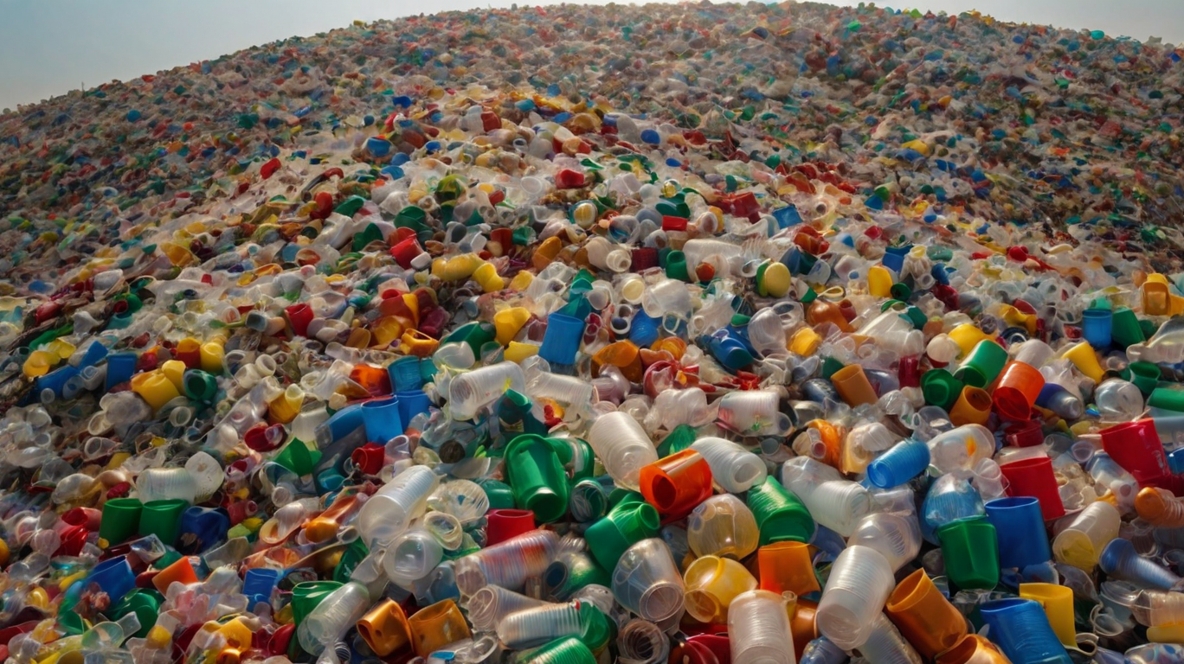Nigeria plastic market is experiencing notable growth, and 2024 is expected to be a pivotal year for the industry. As one of Africa’s largest economies, Nigeria offers vast potential for plastic manufacturers, driven by its growing population, urbanization, and increasing industrial demand. This article explores the factors fueling the growth of Nigeria plastic market, including rising demand across various sectors, sustainability trends, and the need for infrastructure improvements.
- Expanding Demand for Packaging
Packaging remains the dominant sector driving the growth of Nigeria’s plastic market. With Nigeria’s population surpassing 200 million, the demand for packaged goods has grown significantly. In 2024, the food and beverage industry, in particular, will continue to be a major consumer of plastic packaging materials. Packaging is essential for preserving the freshness and quality of food and beverages, and as consumer preferences shift toward convenience, the demand for packaged products is expected to rise.
Additionally, the personal care and pharmaceutical industries are also increasing their use of plastic for packaging, as these sectors expand in response to Nigeria’s growing middle class and rising disposable incomes. In 2024, packaging solutions like bottles, containers, and pouches will remain integral, contributing significantly to market growth.
- Infrastructure Development and Construction
Nigeria’s ongoing infrastructure development presents a promising growth opportunity for the plastic market. The country’s drive to improve its infrastructure—spanning roads, bridges, and residential developments—creates a high demand for durable plastic materials, such as pipes, fittings, and insulation products. Plastics are preferred for their light weight, cost-effectiveness, and resistance to corrosion, making them ideal for the construction sector.
In 2024, increased investments in urbanization and the government’s emphasis on infrastructure projects will continue to fuel demand for construction-related plastic products. The real estate boom in Nigeria’s urban centers also creates opportunities for manufacturers to supply plastics for housing projects, further driving market growth.
- Growth in Medical and Healthcare Plastics
The healthcare sector is another significant driver of plastic market growth in Nigeria. The demand for medical packaging, disposable plastic products, and protective equipment surged during the COVID-19 pandemic, and this demand is expected to continue into 2024. With an increasing focus on public health, the need for high-quality medical packaging materials such as blister packs, syringes, and diagnostic kits is rising.
Additionally, the healthcare industry is turning to plastics for the production of medical devices and PPE, further contributing to market growth. The ongoing development of healthcare infrastructure in Nigeria will only increase the need for medical-grade plastic products, making the sector a crucial driver of the plastic market in 2024.
- Sustainable Growth and Green Plastics
As environmental concerns around plastic waste intensify globally, the demand for sustainable plastic solutions in Nigeria is also rising. In 2024, more businesses will focus on eco-friendly alternatives, such as biodegradable plastics and recycling initiatives. Although the country still faces challenges in waste management, there is growing awareness of the need for sustainability in production and consumption.
Nigerian manufacturers are increasingly adopting sustainable practices to meet both consumer demands and international environmental standards. This shift is expected to play a crucial role in driving market growth, as companies that prioritize sustainability will gain a competitive edge in an increasingly eco-conscious market.
- Local Manufacturing and Cost Efficiency
Another key factor in the growth of Nigeria’s plastic market is the push towards local manufacturing. Nigeria has traditionally relied on imported plastic raw materials, but in 2024, there is a growing trend toward sourcing materials locally. By investing in local resin production, Nigerian manufacturers can reduce reliance on imports, mitigate the impact of exchange rate fluctuations, and lower overall production costs.
Local sourcing of raw materials can improve the cost efficiency of plastic products, making them more competitive in both domestic and international markets. This shift not only supports the growth of the plastic industry but also promotes economic development through the creation of jobs and the strengthening of local supply chains.
Fore More Info : – https://gmiresearch.com/report/nigeria-plastic-market/
Conclusion
The growth of Nigeria’s plastic market in 2024 is driven by several key factors, including the expanding demand for packaging, infrastructure development, healthcare products, sustainability, and local manufacturing. With a favorable economic climate, rising consumer demand, and the potential for innovation in production processes, the Nigerian plastic industry is well-positioned for continued growth. Manufacturers who embrace sustainability, invest in local production, and cater to emerging sectors will find significant opportunities for success in this thriving market.


